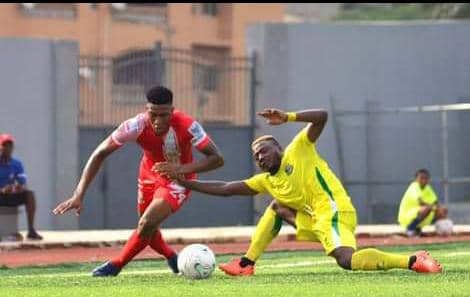By Ibrahim T. Abiola Esq
In this reports, I will be availing players, officials, and coaches a strategic, legal, and efficient method of recovering their unpaid salaries from NPFL Clubs based on the Framework and Rules of the league.
Yes! This sound quite strange in the face of countless cases of unpaid salaries that have gone unattended to and many efforts that have yielded no benefits.
This, is perhaps the most legal-backed approach which can be deployed to recover unpaid wages, albeit the bureaucracy in the Nigerian system can still demystify it. In the end, justice can be delayed but not denied.
In the Nigeria Professional Football League (NPFL), the minimum contract length between a club and a player is from its effective date (the day the contract is said to take effect) until the end of the season.
The maximum contract duration in the NPFL is five years, but a player under 18 is not allowed to enter a professional contract for a term longer than two years. Parties must sign five counterpart copies of an agreement between a club and a Player – one for the Club, the Player, the Player’s Representative, the LMC, and the NFF.
Interestingly, the framework and rules also state that the minimum wage for players in the NPFL is N150, 000 (One hundred and Fifty thousand naira), or the Board may decide from time to time. A player’s contract must also state all details of the Player’s remuneration, including all benefits to which he is entitled, whether in cash or kind.
It was further noted that in the spirit of contractual obligations, all clubs must comply with their financial commitments toward players per the terms stipulated in the contracts.
Recently, there have been recent reports of certain clubs in the NPFL who have been unable to comply with their contractual obligations towards players. This includes current and former players who cannot receive wages for services rendered per their contracts.
Typical of Nigerians, these players are now in the habit of staging various protests and media talks to catch the public’s attention to aid them in receiving their entitlements. Is this the way to go? What are the players expected to do as per the Framework and Rules?
Basically, there are two provisions in the Framework and Rules: Section B, Rule 9, and Section D.
Rule 9 (this section deals with overdue payables):
Before a club can be said to have overdue payables in line with the rules, the Player must submit a letter of demand to the Club and grant a deadline of at least ten days to comply with its financial obligations.
A club that does not comply with its financial obligations to the Player for more than 30 days without a reasonable contractual basis may be sanctioned in line with the Framework and Rules. Where this happens, the League Management Company (LMC) has the power to: warn the Club, reprimand the Club or impose a fine on the Club.
The LMC can ban the Club from registering new players, withhold payments due to the Club from transferring players, and use such amounts to settle the overdue payables or deduct points.
If the Club repeats the offense, it shall be deemed an aggravating circumstance and may lead to a more severe penalty. Where the Club is handed a registration ban, the LMC may suspend the ban’s execution subject to a probationary period ranging from six months to two years.
In addition, if the Club on probation for a registration ban commits a similar offense, the probation is automatically revoked, and the registration ban becomes final. This does not prevent the LMC from imposing a new sanction for the new violation.
Section D: Arbitration and Dispute Resolution
Where there is a trade dispute between a player and a club over an unfulfilled contract agreement or conditions of service, the procedure is:
The Player writes a letter to the Club stating the grounds of the trade dispute. In the letter, the Player gives the Club 30 days’ notice to comply with the contract.
Also, the Player must send a copy of the letter to the LMC for its intervention within 30 days.
Where the Club fails to comply with the contract at the expiration of 30 days, the Player will refer the matter to the Arbitration Committee of NFF for adjudication.
The Arbitration Committee of NFF shall then adjudicate and give its decision accordingly. The decision shall be final and binding on the Player and Club.
Where the Club fails to comply with the decision of the Arbitration Committee of NFF, the LMC shall have the power to deduct from or withhold the Club’s money to settle the debt.
Meanwhile, if a club fails to comply with the decision of the Arbitration Committee, the LMC may expel the Club.
In furtherance of the foregoing, it is deducible that the staging of protests by players over unpaid wages is contrary to the framework and rules, which is deemed counterproductive.
Players must follow the procedures per the stated provisions to receive unpaid wages. It is advisable to contact a knowledgeable Legal Practitioner to ensure maximum output.










